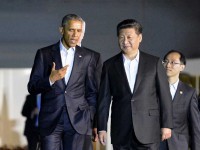
Yu Sui, Professor, China Center for Contemporary World Studies
Jan 21, 2016
As the two countries pursue a new major-power relationship, and China focuses on eliminating poverty for its citizens, there is more reason than ever for cooperation and easing mistrust. President Xi’s visit to the US was a herald for an expanding partnership, and issues like the South China Sea and third-party naysaying should not be allowed to disrupt relations.
Cui Liru, Former President, China Institutes of Contemporary International Relations
Jan 20, 2016
Global developments have led China to take a more proactive approach in dealing with international issues in 2015 that saw China transition to practicing “major-country” diplomacy. As U.S.-China relations are turning more contentious and competitive, the two countries must seek convergence of common interests and avoid conflict and confrontation.
Wu Jianmin, Former President, China Foreign Affairs University
Jan 13, 2016
The success of the climate conference in Paris clearly shows that dialogue between Washington and Beijing can be serious and productive. There are new challenges in the year ahead, with elections in both Taiwan and the US, but the bilateral relationship is so important for international peace and security in the 21st century that we cannot afford to let it drift.
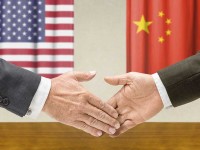
Chen Yonglong, Director of Center of American Studies, China Foundation for International Studies
Jan 12, 2016
From the Iran nuclear deal to the climate agreement in Paris, a new level of cooperation between Beijing and Washington signals that the pragmatic relationship dating from the Nixon administration is not threatened by changes in international conditions. A consensus is taking shape among celebrities, ordinary citizens, leaders and strategists in both countries that China and the US should not change their course of engagement and cooperation.
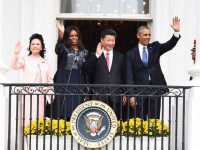
Cheng Li, Director, John L. Thornton China Center, The Brookings Institution
Oct 07, 2015
Although the Obama-Xi meeting left plenty to be desired on disputed issues such as cybersecurity and the South China Sea, it was a significant and pleasant surprise that Xi softened some of the most pessimistic sentiments and disarmed suspicions in such a short time, highlighting respect for the U.S. and its people, in appealing words to the American public.
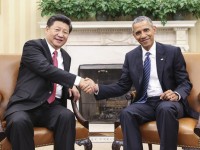
Stephen Harner, Former US State Department Official
Oct 05, 2015
Following President Xi’s recent visit to the U.S., Xi’s concept of “a new model of great power relations” seems to be back on the China-U.S. agenda. Originally pushed by Xi and now being reconsidered by Obama, this concept suggests a major turning point for both countries.

Tao Wenzhao, Honorary Member of the Chinese Academy of Social Sciences; Fellow, CASS Institute of American Studies
Sep 30, 2015
New agreements on collaboration in such areas as agriculture, grain production, civil aviation, high-speed railways, law enforcement, and military-to-military relations will further deepen interdependence. Xi’s visit has increased mutual confidence, reduced mutual suspicion, with achievements that made it a milestone in bilateral relations.
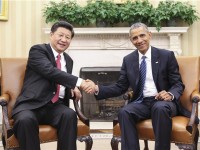
Minxin Pei, Tom and Margot Pritzker ’72 Professor of Government , Claremont McKenna College
Sep 29, 2015
It may be too early to tell, but one would not risk ridicule by claiming that the just-concluded U.S.-China summit has accomplished its most important, albeit intangible, objective: temporarily arresting the downward spiral in the ties between Washington and Beijing.
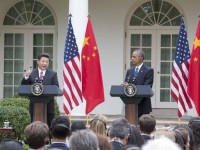
He Yafei, Former Vice Minister of Foreign Affairs
Sep 28, 2015
The Xi-Obama meetings have demonstrated that China and the US can be frank and open with each other when addressing difficult issues. The result could be a new order in a multipolar world that better accommodates the needs and desires of the entire globe.
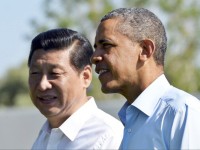
Yu Sui, Professor, China Center for Contemporary World Studies
Sep 21, 2015
Sino-US relations have gone beyond bilateral scope and are showing increasing global significance. Reality calls for both sides to consider each other’s reasonable concerns, learn from each other, and push aside barriers to their collaboration as they pursue common goals and interests.
Back to Top

- China-US Focus builds trust and understanding between the U.S. and China through open dialogue among thought leaders.
- Our Offerings
- Topics
- Videos
- Podcasts
- Columnists
- Research Reports
- Focus Digest
- Stay Connected
-
Thanks for signing up!
- Get the latest stories from China-US Focus weekly.